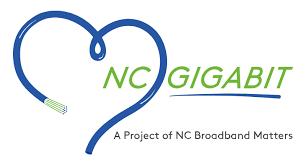How Telecom Monopolies Killed Competition in North Carolina With HB 129 - Community Broadband Bits Episode 412

We've written a lot about North Carolina's HB 129, the anti-competition law that prevents communities in the state from investing in broadband infrastructure. This week on the Community Broadband Bits podcast, Christopher dives deeper into the history of HB 129 with guests Catharine Rice, co-founder of NC Broadband Matters and project manager at the Coalition for Local Internet Choice, and Jack Cozort, a government relations consultant who has worked with the City of Wilson. In this first half of a two part conversation, Christopher and his guests discuss the years leading up to HB 129, which was passed in 2011, speaking frankly about the sway telecom lobbyists held over state legislators.
To start, Jack describes how Wilson decided to invest in its own broadband network Greenlight, after incumbent providers refused to partner with the city to upgrade the community. He goes on to explain how Wilson's decision led the regional broadband monopolies Time Warner Cable (now Charter Spectrum) and AT&T to advocate for legal restrictions on municipal broadband at the state legislature.
Catharine and Jack review some of the early bills — written by telecom companies and handed off to state legislators — that the monopoly providers introduced in an attempt to stop broadband competition. They share their involvement in those legislative fights and explain how difficult it was to counter the influence that the telecom industry had over politicians in both major parties. However, Catharine points out that there were also Democratic legislators during this time who defended local broadband authority and kept anti-competitive legislation from being passed.
In the November 2010 election, the North Carolina legislature shifted control to the Republican party. Christopher and his guests end the podcast by talking about how that set the stage for HB 129, which would be introduced the next year.
Today's episode is part one of two. Listen to the second half of this conversation on North Carolina's HB 129.

This is a special episode of the "Why NC Broadband Matters" podcast series, created in partnership with NC Broadband Matters, a nonprofit that's working to bring high-quality Internet access to all communities in the state. Previous epsiodes in the series touch on telehealth, the homework gap, and broadband mapping, among other topics relevant to connectivity in North Carolina.
This show is 56 minutes long and can be played on this page or via Apple Podcasts or the tool of your choice using this feed.
Transcript below.
We want your feedback and suggestions for the show-please e-mail us or leave a comment below.
Listen to other episodes here or view all episodes in our index. See other podcasts from the Institute for Local Self-Reliance here.
Thanks to Arne Huseby for the music. The song is Warm Duck Shuffle and is licensed under a Creative Commons Attribution (3.0) license.
"North Carolina State Capitol" by Jim Bowen via Flickr. Used under a Creative Commons Attribution (2.0) license.


 Christopher and Leslie discuss the Institute for Emerging Issues, and Leslie describes how they developed the theme of the forum, ReCONNECT. They talk about the importance of not only expanding broadband infrstructure but making sure people and businesses can take advantage of technology. Leslie explains why rural and urban communities rely on eachother and both deserve investment in digital inclusion.
Christopher and Leslie discuss the Institute for Emerging Issues, and Leslie describes how they developed the theme of the forum, ReCONNECT. They talk about the importance of not only expanding broadband infrstructure but making sure people and businesses can take advantage of technology. Leslie explains why rural and urban communities rely on eachother and both deserve investment in digital inclusion.